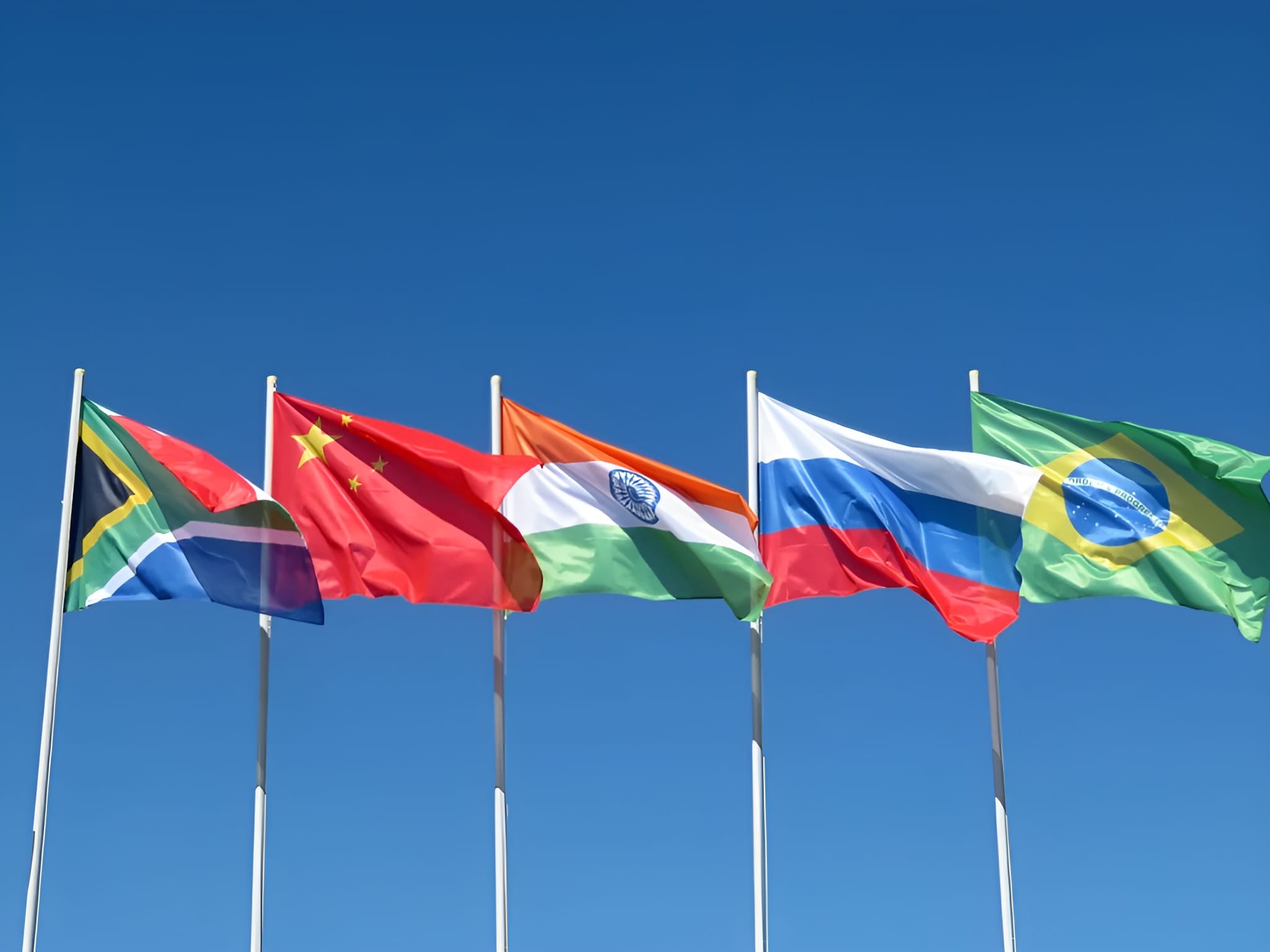
The BRICS Nations: A New Era in Global Geopolitics and Economics
The BRICS nations—Brazil, Russia, India, China, and South Africa—have long been seen as a counterpoint to the Western-led global order, advocating for a more equitable and inclusive international system. As of 2024, this influential bloc is undergoing a major transformation with the addition of six new members: Argentina, Egypt, Ethiopia, Iran, Saudi Arabia, and the UAE. This article explores the growing significance of the BRICS nations, their goals of reshaping global governance, and their impact on the global economy.
What Are the BRICS Nations?
The group was originally formed by four rapidly growing emerging economies: Brazil, Russia, India, and China. The acronym “BRIC” was coined by economist Jim O’Neill in 2001, suggesting that these countries would drive future global growth. South Africa joined the group in 2010, making it BRICS. The nations of this bloc represent a diverse mix of cultures, political systems, and economic profiles, yet they share a commitment to creating a multipolar world order where developing economies have a stronger voice.
Over the years, BRICS has evolved from an economic alliance into a geopolitical force. The group’s members aim to reform international institutions like the United Nations (UN) and the International Monetary Fund (IMF), which they argue are outdated and fail to represent the interests of the Global South
BRICS Expansion: A Shift Toward the Global South
In a historic move in 2023, BRICS bloc expanded by inviting six new countries—Argentina, Egypt, Ethiopia, Iran, Saudi Arabia, and the UAE—to join the group. This expansion reflects the growing influence of the Global South in world affairs and signals a shift away from the Western-dominated geopolitical order.
For the BRICS nations, this expansion is not just about increasing numbers; it’s about amplifying their collective power on the global stage. The inclusion of countries from Africa, the Middle East, and Latin America allows BRICS to present a united front for the interests of emerging markets, advocating for reforms that reflect their economic contributions
Key Goals and Values of BRICS
BRICS aims to foster a more balanced and inclusive global system. Here are some of the core objectives of the BRICS nations:
- Reforming Global Institutions: BRICS has long called for reforms to the UN, IMF, and World Bank. The group seeks a more equitable representation of emerging economies, particularly those from Africa, Latin America, and Asia. For instance, the BRICS countries have advocated for permanent seats for these regions on the UN Security Council, challenging the longstanding dominance of Western powersWorld Economic Forum.
- Economic Coordination and Trade: BRICS has focused on enhancing economic cooperation among its members, including reducing reliance on the U.S. dollar for trade and investment. This is part of the broader de-dollarization agenda, which aims to decrease the dominance of the U.S. dollar in global transactions. The group encourages using local currencies for trade and investment among its membersCouncil on Foreign RelationsWorld Economic Forum.
- Creating Alternative Financial Systems: One of BRICS’ major achievements has been the creation of the New Development Bank (NDB) and the Contingent Reserve Arrangement (CRA). These institutions were designed as alternatives to the IMF and World Bank, providing loans and financial assistance to developing countries. The NDB, in particular, has focused on financing infrastructure projects, climate change initiatives, and sustainable developmentCouncil on Foreign Relations.
The BRICS Financial System: Challenging the Bretton Woods Framework
A key aspect of BRICS’ influence lies in its efforts to build a financial system that competes with the Bretton Woods institutions (the IMF and World Bank). While the Bretton Woods system has historically been dominated by Western powers, BRICS aims to offer a more inclusive alternative, one that meets the needs of the Global South.
The New Development Bank (NDB), established in 2014, is a cornerstone of this effort. Unlike the World Bank, which operates under a system of weighted voting (with the U.S. holding the largest share), the NDB offers equal voting rights to all its member states. This gives developing countries more say in the bank’s operations, which focus on financing projects that foster sustainable development and improve infrastructure in emerging markets
Additionally, the CRA provides emergency financial support to BRICS members in times of currency crises. This cooperative fund aims to protect members from the volatility of the global financial system, which is often influenced by Western economic policies
A Multipolar World Order: Shaping Global Governance
The rise of BRICS signals a shift towards a multipolar world order, where power is distributed more evenly among the major global players. This new balance challenges the long-standing dominance of the West, particularly the U.S., in shaping global economic and political policies.
At the 2023 BRICS summit in Kazan, Russia, leaders from the group reiterated their commitment to creating a “just, democratic, and balanced multipolar world order.” The Kazan Declaration underscored the need for greater participation by emerging markets and developing countries in global decision-making processes
In practical terms, this means pushing for reforms in global governance structures, including the expansion of the UN Security Council and more representation for countries in the Global South in international financial institutions. By advocating for these changes, BRICS hopes to ensure that decisions affecting the global economy are more inclusive and reflect the interests of all nations, not just the traditional economic powers.
BRICS and Global Security: A Unified Voice
In addition to economic issues, BRICS also plays a role in global security and conflict resolution. The group has expressed concern about various conflicts, including the ongoing situation in Gaza and the war in Ukraine. The BRICS nations have called for peaceful resolutions to these conflicts and have emphasized the importance of dialogue and diplomacy over military intervention.
The BRICS group also advocates for the sovereignty of nations and opposes the use of “unilateral coercive measures,” such as sanctions, that they argue disrupt the global economy. In particular, BRICS countries have criticized the U.S. and European sanctions on countries like Russia, Iran, and Venezuela, calling for a more equitable approach to international relations
What Does the Future Hold for BRICS?
With its growing membership and increasing influence, BRICS is poised to play a larger role in shaping global economics and geopolitics. However, the group’s expansion also presents challenges. Managing the interests of an increasingly diverse group of nations, each with its own political and economic priorities, will require diplomatic skill and careful coordination.
Additionally, the BRICS bloc faces pushback from Western powers, who view the group’s influence as a threat to the established global order. Nevertheless, the rise of BRICS reflects the broader trend of a shifting geopolitical landscape, where emerging economies are asserting themselves more forcefully on the global stage.
In the coming years, the BRICS nations are likely to continue pushing for reforms in global governance, seeking to create a world where the voices of developing countries are heard and respected. As the bloc grows, so too does its potential to reshape the future of global diplomacy, trade, and finance.
Frequently Asked Questions (FAQs)
What countries are part of the BRICS bloc?
The BRICS bloc includes Brazil, Russia, India, China, and South Africa. In 2023, six more countries were invited to join: Argentina, Egypt, Ethiopia, Iran, Saudi Arabia, and the UAE.
What is the goal of BRICS?
BRICS aims to promote a more equitable global order by reforming international institutions, increasing the participation of emerging economies, and reducing reliance on the U.S. dollar in global trade.
How does BRICS challenge the Western financial system?
BRICS has created alternative financial institutions like the New Development Bank (NDB) and the Contingent Reserve Arrangement (CRA) to provide loans and emergency financial support to developing countries, reducing reliance on the IMF and World Bank.
Why is BRICS important in global geopolitics?
BRICS represents a growing collective force of emerging economies, advocating for a multipolar world order where power is more evenly distributed among nations. The group seeks to challenge the dominance of the West in shaping global policies.
What are the BRICS countries’ positions on global conflicts?
BRICS has consistently called for peaceful resolutions to conflicts, including the wars in Gaza and Ukraine. The group advocates for diplomacy and opposes the use of sanctions or military intervention.
How has BRICS expanded recently?
In 2023, BRICS invited six new countries to join its ranks—Argentina, Egypt, Ethiopia, Iran, Saudi Arabia, and the UAE—expanding its influence across Africa, Asia, and the Middle East.
Conclusion
The BRICS nations’ growing influence represents a significant shift in the global balance of power. By expanding its membership, advocating for reforms in global governance, and challenging the dominance of Western institutions, BRICS is positioning itself as a powerful force for change. As the world continues to evolve, the actions and priorities of BRICS will shape the future of international relations, economics, and security.
Do follow for more news: DailyForesight



